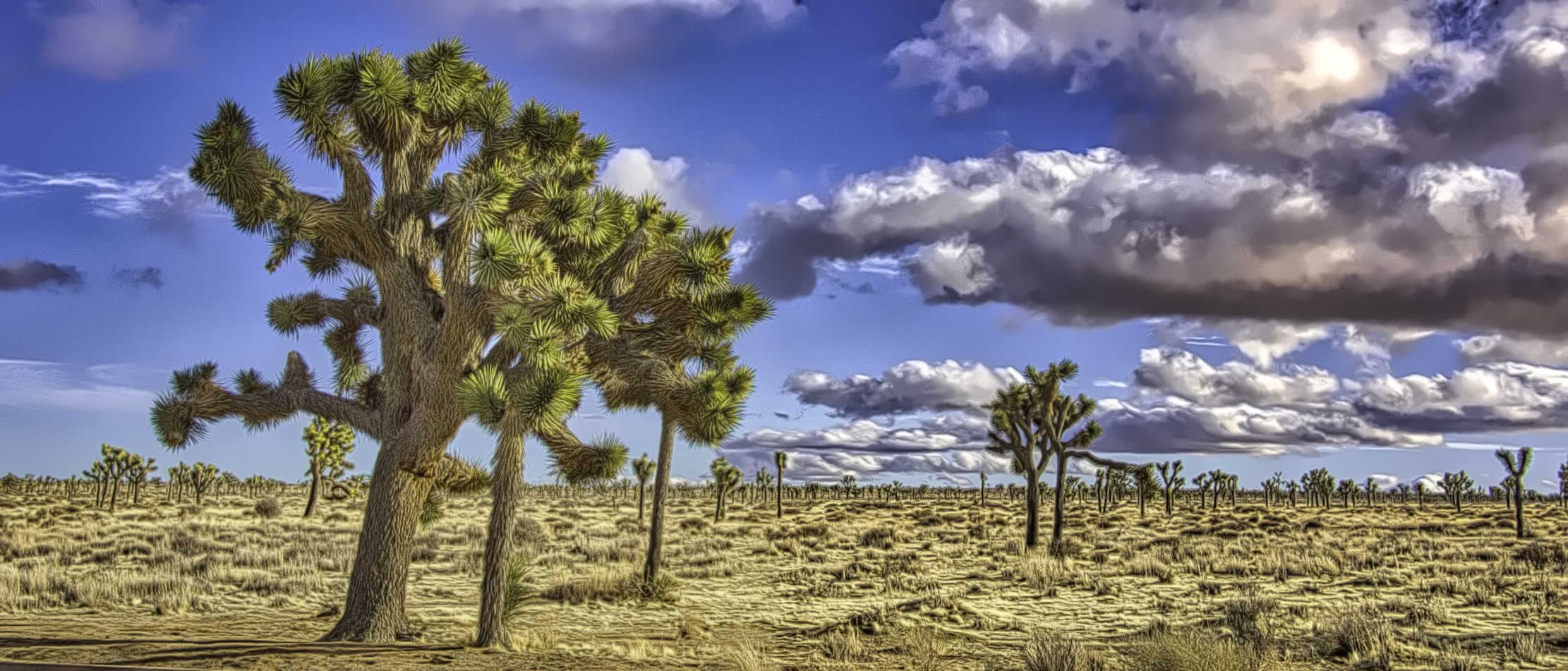One of our priorities when we visited Palm Springs, California over Christmas was a trip down to Joshua Tree National Park. With the nearest entrance only about an hour away, it makes for a great day trip to get you out in nature, nature that is quite unusual.
Joshua Tree National Park is a large park in the desert. It actually covers two desert environments which have distinctive flora in them. The Joshua trees are not all over the park but only in certain areas.
There are three main entrances to the park, one on the west side and two on the east side. The roads connect so you can do a tour of the park and see the major points of interest by driving through the park. On a busy day parking can become an issue. It seems most of the national parks have this concern.
We began our visit on the west side driving down from Palm Springs. The Cottonwood Visitor Center is the first stop from this entrance. Unfortunately the parking lot is small, and it’s difficult to find a space. When we were there, they were not taking fees at this location. Fees were collected when we left the park at the entrance on the eastern side.
Next to the information center is a road that takes you up to Cottonwood Springs. There are some hikes that go up the mountain side from there. Again parking is limited, and people parked along the side of the road. We walked some, but didn’t find the area very interesting. The family wanted Joshua trees, and there are none in this area.
This region of the park is part of the Colorado Desert Basin and is pretty barren feeling. However, it is surrounded by mountains which have a beauty that comes from the contours and shadows of the mountains.

We drove quite a ways into the park before finding an area of interest which was the Cholla Cactus Garden. The Cholla cactus is full of thin spikes, which one does not want to touch. Near the fence I noticed a first aid kit sitting there. Apparently this is for anyone who doesn’t head the warning signs not to touch. These cactus grow about 4 or 5 feet tall. When the light shines through them, they are indeed beautiful.


Our next stop was at Skull Rock which is an area of large boulders. This is a great place for adventurous kids of whatever age who like to climb over rocks and explore what’s just beyond. Skull Rock looks like a skull. However, it is hard to get a good photo of it because of everyone else taking pictures, and the fact there’s another big rock in front of it. If you want to explore the area further, there are some different trails around that go deeper into the territory.
The exciting aspect of this stretch of the park is that we were finally seeing the promised Joshua trees. Having left the Colorado Desert behind, we were now in the Mojave Desert, the home of the Joshua tree. They do not create a forest, but it’s actually interesting when they stand alone. It’s a little more dramatic.

Our next viewpoint is called Keys View. It’s at the end of about a 20 minute drive. However, it can take more than 20 minutes to actually approach the view. Because this is a popular point, parking is difficult and created a backup into the parking lot. The problem was people would wait for someone to leave often not noting the open spaces further up. We probably waited nearly 15 minutes to park.
There is a short hike up to the viewpoint with a great view of the Coachella Valley, the Salton Sea and the surrounding mountains. However, when we were there the view wasn’t so great. Toward the north the sun was low and shining into our eyes. Along with a bit of a mist, it made it hard to see. We had a better view to the southern region of the valley. After the drive up and the long wait, my family was not impressed. Being so high up it was also pretty cold. They just wanted to leave not appreciating it as much as I did.
Coming back down to the main road, we began to move toward the north east exit. We were back to Joshua tree country.


Heading towards the exit the landscape became rocky again. It was almost as if someone had just piled up a bunch of rocks in places. The Joshua trees continued as well.


As we approached the exit, there was a backup of cars. They were collecting the entrance fees of those who needed to pay. Fortunately since I didn’t have to pay because of my senior pass, we were able to get out a little more quickly.
Outside of the park it was a little confusing getting back to the main highway. After going through a residential area in the town of Joshua Tree, we eventually got back to the highway and made our way back to Palm Springs.
Winter time is actually the busy season for Joshua Tree which is no surprise. In the summer it would be very hot and certainly make getting out of your air conditioned car challenging. In the winter its great to get out and see the unique plants and landscapes here. One day makes for a quick tour. Another day would allow more opportunities to explore. It would be worth it to go back.
Have you been to Joshua Tree National Park? What were your experiences? I’d love to have you share them in the comment section below.










